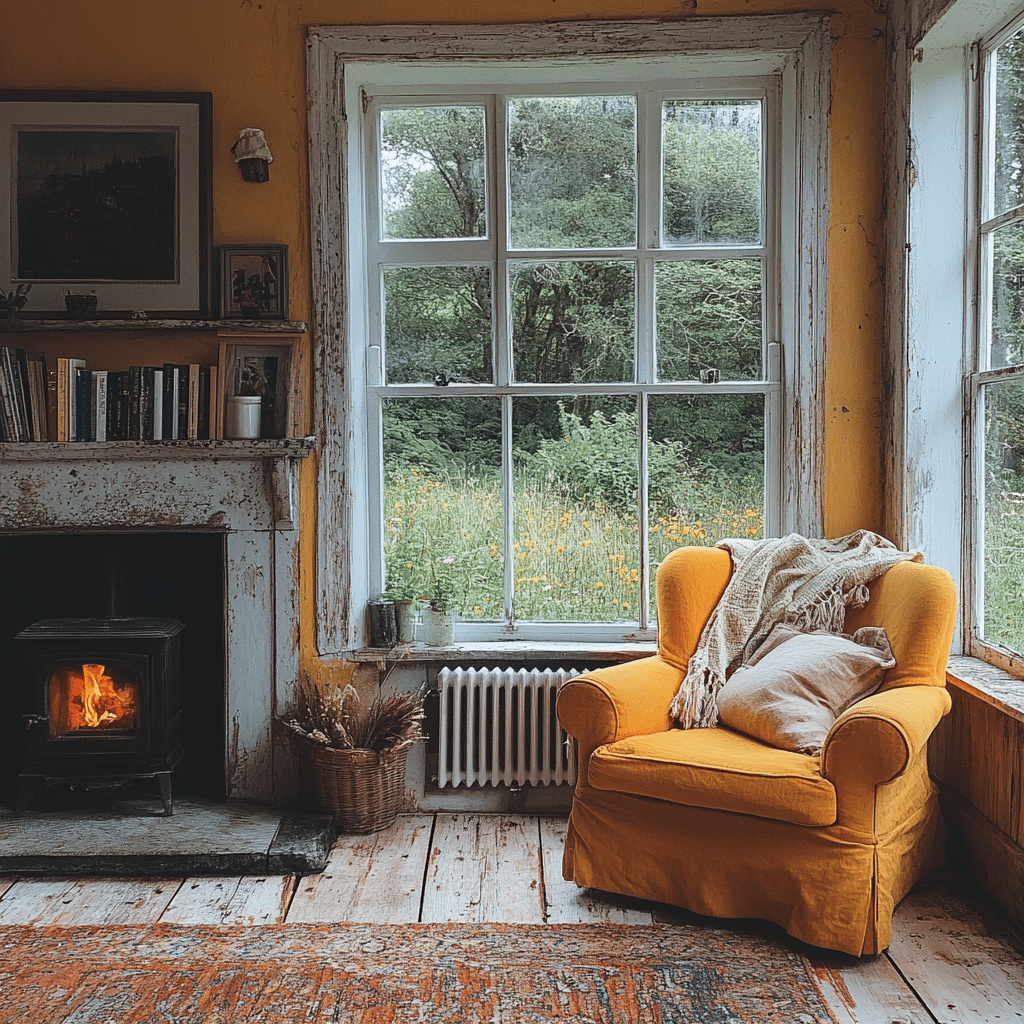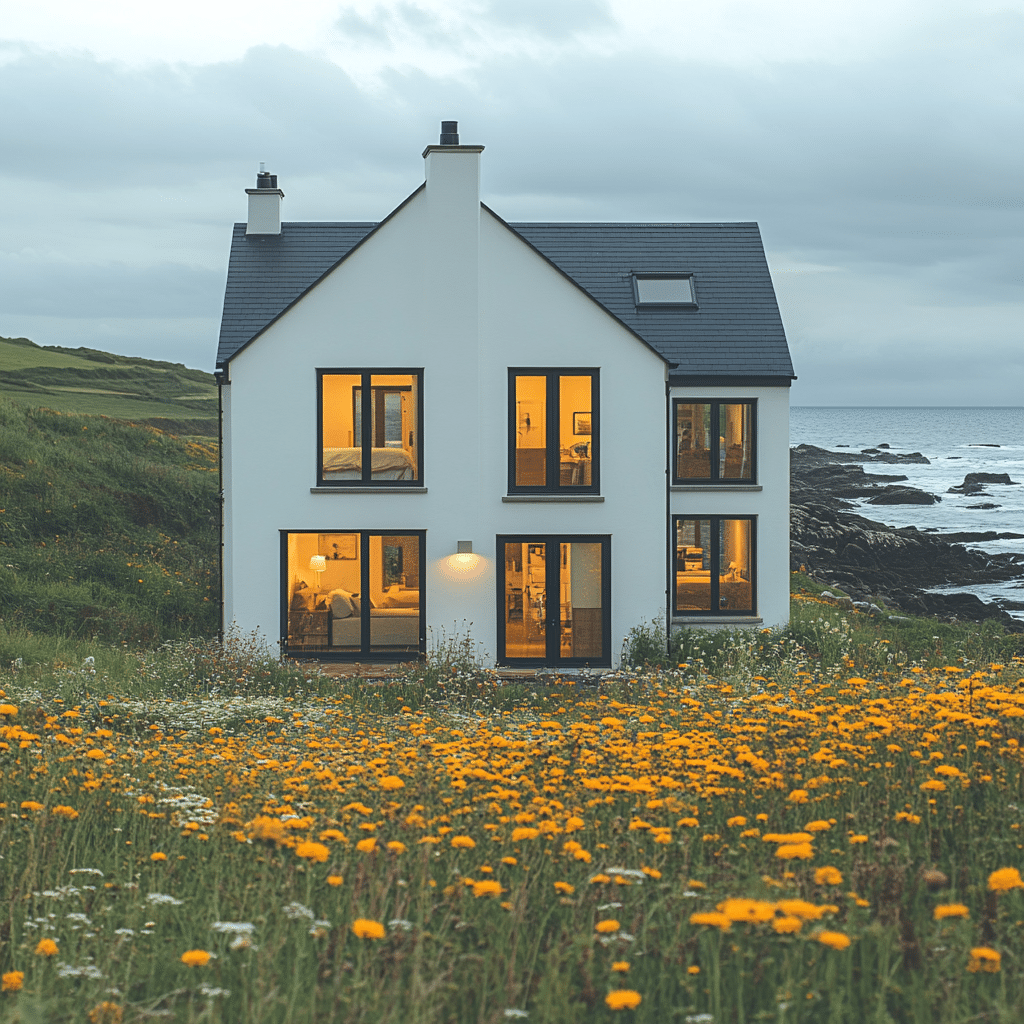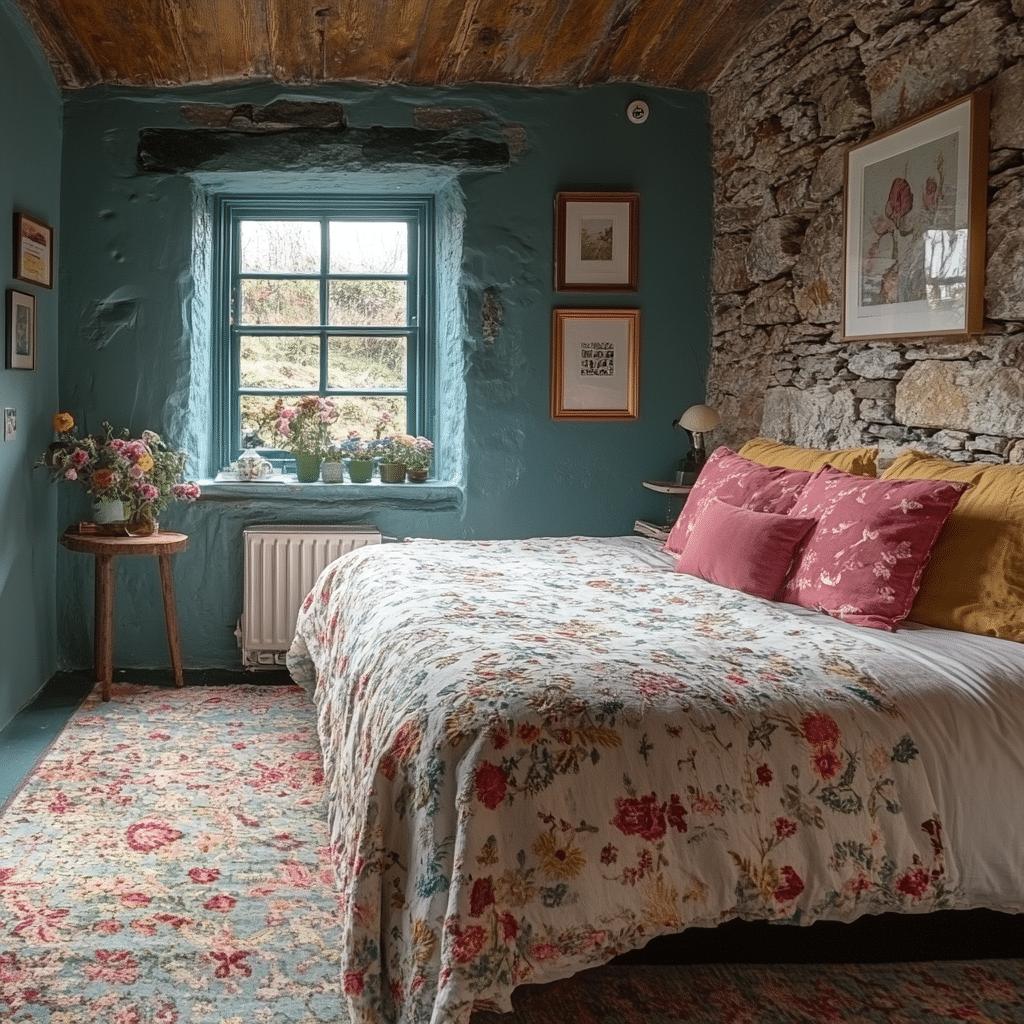Airbnb Northern Ireland: Balancing Tourism and Housing Crisis
Airbnb Northern Ireland: An Overview
Northern Ireland has rapidly emerged as a sought-after destination on platforms like Airbnb. Tourists, swayed by the charm of local homes, prefer these short-term stays over traditional hotels. According to the Northern Ireland Statistics and Research Agency (NISRA), the number of properties listed on Airbnb surged by 35% between 2020 and 2023. This influx has provided economic benefits but also brought substantial challenges.
| Aspect | Details |
| Classification | Self-Catering Accommodation |
| Certificate Requirement | Hosts must apply for a self-catering accommodation certificate. |
| Certificate Cost | £40 |
| Certificate Validity | Up to 4 years (valid until 2027 if obtained in 2023) |
| Rent Trends (2023) | – Belfast: £936/month (9.6% annual increase) – Outside Belfast: £764/month (11.5% annual increase) |
| Rental Performance Index (Q4 2023) | 158.8 (up by almost 16 percentage points from the same period last year) |
| Planning Permission | – New Use: Apply for planning permission before starting short-term letting |
| Retention Permission | – Unauthorized Existing Use: Apply for retention permission (application process takes about 8 weeks) |
| Home Sharing | – Spare Room in PPR: Allowed all year round, must register annually with local authority – Entire PPR: Allowed for up to 90 days per year when away; must notify local authority |
Economic Boost and But at What Cost?
The proliferation of Airbnb Northern Ireland listings has undeniably boosted local economies. Cities like Belfast, Derry, and coastal towns such as Portrush have seen increased tourist spending on local attractions and hospitality services. Stephen Kearney, owner of a thriving café in Belfast’s Cathedral Quarter, remarks, “Our business has almost doubled since Airbnb properties started popping up in our vicinity; we see new faces every day.”
However, this growth hasn’t come cheap. The surge in short-term rentals has significantly impacted the local housing market, driving up rent and property prices. Research by the University of Ulster reveals a 40% increase in average rent in areas dense with Airbnb listings over the past three years. Areas such as Belfast showed an annual rent increase of 9.6% in 2023, with the average monthly rent hitting £936, while outside of Belfast, average rent soared by 11.5% to £764. Such spikes are pushing local residents out of their neighborhoods, making long-term rentals both costlier and scarcer.

New Regulatory Framework: Airbnb Northern Ireland
In response to the growing housing crisis, the Northern Ireland Assembly enacted new regulations in early 2024. These rules aim to strike a balance between fostering tourism and ensuring affordable housing for residents. Below are some key regulations:
1. Cap on Short-Term Rentals
Property owners are now limited to renting out their homes on Airbnb for a maximum of 90 days per year. This measure hopes to prevent permanent homes from becoming year-round short-term rentals, thereby freeing up housing stock for locals.
2. Mandatory Licensing and Self-Catering Accommodation Certificate
All Airbnb hosts must obtain a license, requiring strict compliance with health, safety, and zoning regulations. Furthermore, hosts must also apply for a self-catering accommodation certificate, costing £40 and remaining valid for up to four years. Deirdre Hargey, Minister for Communities, remarks, “We want to make sure the properties are safe and that there’s accountability for both hosts and guests.”
3. Increased Taxation
Hosts face increased taxation on income generated through short-term rentals. This revenue is channeled into affordable housing projects and community reinvestment funds. The Housing Executive has earmarked £10 million for new social housing initiatives in Belfast and Derry.
Mixed Reactions from Stakeholders
Opinions on the new regulations are split. Claire Byrne, who rents out a cozy cottage in the Mourne Mountains, feels the restrictions are too harsh. “The income from Airbnb helps us maintain our property and supports our livelihood. The 90-day limit severely impacts our finances,” she claims.
On the other hand, advocacy groups such as Housing Rights applaud the move. John Black, a spokesperson, comments, “Rising rents were unsustainable. These regulations ensure locals aren’t priced out of their communities.”

The Way Forward: Recommendations from Experts
Policy experts propose further amendments and innovations to create a more sustainable Airbnb Northern Ireland market:
1. Incentivizing Long-Term Rentals
Government incentives for property owners to offer long-term rentals could alleviate housing shortages. Subsidies or tax breaks for landlords maintaining year-long leases might encourage a shift away from short-term rentals.
2. Enhanced Community Involvement
Community boards could be established to oversee licensing and ensure that local stakeholders have a voice in decisions impacting their neighborhoods. This model could replicate successful frameworks in cities like Amsterdam.
3. Transparent Data Sharing
A public database of Airbnb listings and their compliance status could promote transparency. Open data initiatives can help monitor market trends, ensuring fair regulations and their effective implementation.
A Future of Harmony Between Tourism and Housing
As Northern Ireland navigates the challenging terrain of rising rent and enhanced regulation, the goal remains clear: creating a balance between thriving tourism and secure local residency. While solutions are not straightforward, a committed approach involving all stakeholders—from policymakers and residents to landlords and tourists—will be crucial in shaping a balanced future. For the latest updates visit Lurgan News. The island’s allure should boost both its economy and the well-being of those who call it home.
Airbnb Northern Ireland: Rising Rent and New Rules
Fascinating Trivia
When chatting about Airbnb Northern Ireland, some fun factoids and tidbits really spice up the conversation. Did you know that over the past 15 years, Northern Ireland has seen an unexpected boom in short-term lets? This trend aligns with the global growth of Airbnb, which has skyrocketed in many markets, including nearby Airbnb Glasgow. This surge reflects travelers’ increasing hunger for unique experiences.
Now, let’s shift gears a bit and talk about an intriguing local fact: famous novelist Agatha Christie’s influence even trickled down to Northern Ireland. Interestingly, some Airbnb hosts there have themed their properties after beloved Christie classics, as they capitalize on visitors’ fascination with historical mysteries. Fancy staying in a quirky home inspired by one of the numerous Agatha Christie books in order? That’s a yes, please!
Speaking of glam, did you know that Northern Ireland has its own share of noteworthy celebrities? For instance, actress Yvette Wilson once filmed brief segments in the picturesque locales of Northern Ireland. This stirs quite a buzz among film buffs who flock to Airbnb properties just to follow their favorite star’s footsteps.
To top it off, the variety of accommodations in the area almost rivals the exciting assortment of casinos in Maryland. Despite the rule changes and rising rents, Airbnb in Northern Ireland continues to captivate visitors, blending historic allure with modern glam. For those with eclectic tastes, some hosts even offer spaces adorned with art pieces by quirky artists like Iggy Jojo. It’s truly a blend of the old and the new in a way that captures Northern Ireland’s unique charm.
By the way, fans of the cast of Dinnerladies might have an extra reason to book a stay here. Various themed Airbnb stays have been popping up, paying tribute to classic British TV shows. Who knew short-term lettings could offer such a storied and star-studded experience? So whether you’re a fan of mysteries, movie magic, or simply seeking unique lodgings, Airbnb Northern Ireland has a little something for everyone.

Is Airbnb legal in Northern Ireland?
Yes, Airbnb is legal in Northern Ireland. Hosts need to follow specific regulations, including applying for a self-catering accommodation certificate, which costs £40 and is valid for up to four years.
What is the average private rent in Northern Ireland?
As of 2023, the average monthly private rent in Belfast is £936, showing a 9.6% increase from the previous year. Outside of Belfast, the average monthly rent is £764, which is up 11.5% from last year.
Does Ireland allow Airbnb?
Yes, Ireland allows Airbnb. Hosts need to adhere to specific regulations, such as registering with local authorities and adhering to planning permissions.
What are the rules for Airbnb in Ireland?
In Ireland, if you share a room or rooms in your own home (your Principal Primary Residence), you can do so all year round with annual registration with the local authority. If you share your entire PPR while you’re away, you can do it for up to 90 days a year, but you must notify the local authority.
Is Belfast good for Airbnb?
Belfast is a good market for Airbnb, especially given the rising rental prices and demand for short-term accommodations. However, hosts must ensure they comply with local regulations and obtain necessary certificates.
How many Airbnbs are there in Northern Ireland?
There’s no precise public data on the exact number of Airbnbs in Northern Ireland, but the platform is widely used, and the number of listings has been growing.
How much money do you need to live comfortably in Northern Ireland?
To live comfortably in Northern Ireland, a single person might need around £1,500 to £2,000 per month, depending on lifestyle and location. This includes rent, utilities, food, and other basic expenses.
Is rent expensive in Belfast?
Rent in Belfast is considered expensive compared to other areas in Northern Ireland, with an average monthly rent of £936 in 2023. This is partly due to increased demand and limited availability.
Why is renting so expensive in Ireland?
Renting in Ireland is costly due to high demand, limited housing supply, and rising property prices. The rental performance index has also significantly increased, reflecting the market’s upward trend.
What is the 90 day rule on Airbnb?
The 90-day rule on Airbnb means you can rent out your entire Primary Principal Residence for a maximum of 90 days per year if you’re not living there during that time, but local authorities must be notified.
How much does Airbnb charge in Ireland?
Airbnb charges a service fee to hosts, typically ranging from 3% to 5% per booking, and guests may also incur service fees of about 14% of the booking subtotal.
What tax do you pay on Airbnb in Ireland?
In Ireland, Airbnb hosts must pay income tax on their rental earnings, similar to income from other sources. They should include rental income in their annual tax return and may be subject to VAT if they exceed the threshold.
What are not allowed in Airbnb?
Airbnb hosts in Ireland are not allowed to list unauthorized short-term rentals. They must obtain the necessary planning permissions, maintain safety standards, and comply with local housing regulations.
How many houses are on Airbnb in Ireland?
There’s no specific public data on the number of houses listed on Airbnb in Ireland, but the service is popular with thousands of listings across the country.
Why is Airbnb based in Ireland?
Airbnb is based in Ireland due to its favorable tax policies, strategic location within the EU, and its status as a tech hub with access to a skilled workforce.
Can I Airbnb my rental in the UK?
Airbnb rentals are allowed in the UK, but hosts must adhere to regulations such as obtaining necessary permissions, maintaining safety standards, and possibly applying for specific certificates depending on the location.
What is the occupancy rate of Airbnb in Northern Ireland?
Exact occupancy rates for Airbnbs in Northern Ireland aren’t publicly available, but the demand for short-term rentals is steady, especially in tourist-heavy areas.
Can you sublet in Northern Ireland?
Subletting in Northern Ireland is generally allowed, but tenants must have permission from their landlord and ensure they comply with the terms of their lease agreement.
What is the new legislation for Airbnb in the UK?
The new legislation for Airbnb in the UK involves stricter regulations on planning permissions, safety standards, and registration requirements to ensure compliance and maintain housing standards.



